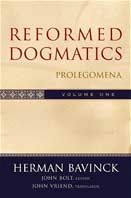Reading: Catching up on a bit of blogging, as well as Berkhof's
Systematic Theology
Enjoying: Muenster cheese and starbursts
Listening: Some classical orchestra aria. I screwed up the download, and now the title reads in gibberish. Its gorgeous listening, however.

I wanted to take a moment and (belatedly) update and weigh in on the recent decisions of the Evangelical Lutheran Church of America.
Chiefly, the 2005 Churchwide Assembly voted on three proposals: a churchwide call to unity and charity, a policy pertaining to the celibacy of gay clergy, and a final policy on the blessing of same-sex unions. (On
What the Thunder Said, it is impossible to use "same-sex" and "marriage" in connotation since this defies this website's definition.)
Of the three proposals, the first rousingly passed, while the latter two fell short of the two - thirds majority needed to pass an addendum. Specifically, this means that the ELCA will pursue love and unity, it opposes the ordination of practicing gay & lesbian clergy, and it opposes the blessing of same-sex unions by the church herself. The results have left several questions in the minds of those within the ELCA and those watching from the outside.
Consider Dr. Al Mohler from a
few days ago:It appears that the denomination avoided taking a clear stand either way... The denomination rejected "formal rites for blessing couples in same-sex relationships," but left churches virtually free to come up with their own... Once again, the ELCA has decided not to decide -- or at least to avoid making any decision that clearly affirms a biblical concept of marriage, sexuality, and ministry. The denomination did adopt a "unity" resolution that called on ELCA churches to remain united, despite "widely differing beliefs on homosexuality." What kind of unity remains after a biblical consensus is gone?
For more on what happened at the assembly, go
here.For a perspective from more "conservative" Lutherans,
try here.I agree that such a display leaves the church on questionable and shaky footing at best. At worst, they have merely prolonged what they have already set about in their hearts to do. Though I am thankful to the Lord for the rejection of the final two proposals, I am afraid the unity displayed in the sealing of the first will carry the denomination where they should not go.
In my
last post on this topic, I found myself running into sticky ground. Does acceptance of homosexual relationships relegate a church or denomination to the status of apostate? Should the ELCA, or the Anglican/Episcopal branches, affirm homosexual relationships as allowable/appropriate, are they in the same category as Rome? It is one thing to say a church is dead and apostate, and another to say most of the members of said church are going to hell. But at what point do pews full of reprobate equivocate apostasy?
Let's start with first things. The Roman Catholic church is understood to be a false church because she has denied the Gospel of our Lord Jesus Christ. Specifically, in denying that justification is by grace through faith, she falls under the apostolic curse of Paul:
Galatians 1:8 But even if we or an angel from heaven should preach to you a gospel contrary to the one we preached to you, let him be accursed (anathema, ἀνάθεμα).
When the Reformers broke from Rome, it wasn't due to the denominationalism rampant in today's Protestant Christianity; it was to continue the true, Apostolic church, which had died in Rome's denial of the Gospel. While any such apostasy is a progressive event, deformation accumulated at the Council of Trent. In refusing to understand faith as related but necessarily distinctly identifiable apart from works (
viz., love), the RCC added to the Gospel, and the Protestant church was born. (Now, whether or not Rome or Protestantism has changed its tune is an altogether other, hotly contested animal. I won't pursue that lemming trail here.)
Now back to our Lutherans. Granted:
- Most in the ELCA aren't "protesting" anything, and can scarcely be called Protestants.
- Some in the ELCA shouldn't even enjoy the term "Christian," despite whose Name they were baptised into and I-don't-care-how-objective-Doug-Wilson-thinks-the-covenant-is.
- The homosexuality issue, even IF unconclusive in itself (and that is a Grand Canyon sized 'if'), is an issue that is demonstrative of a deeper, viral condition of potent filth lying beneath the veneer of denominational bureacracy and politics.
I grant all the above. However, I wonder if it isn't typical of pietistic evangelicals to judge people/denominations on actions rather than ontologies. (For all of you who know my position on Levinas and onto-theology, just hold up a sec. I've got a point coming.) We think we are in trouble with God for our sins, rather than because
we are sinful. We think we will go to heaven because of "evangelical sacraments" (i.e., the "sinner's prayer," walking forward for the altar call, signing a card, raising a hand, etc.), rather than an inward transformation that has taken place by the work of the Holy Spirit on account of Christ's sacrifice and resurrection. Therefore, we think the ELCA bankrupt since it affirms these awful actions, though we cannot see their true state.
Compare the two. We are shoulder to shoulder with Rome in our fight against abortion, marriage, bio-ethics, and everthing else "culture war." But when a Protestant denomination starts to sin like the ELCA does, we are ready to throw out the baby with the bathwater. There is Rome, standing there with all her good deeds (pro-life, pro-abstinence, anti-liberalism, etc.) and absolutely failing at the Gospel, and here is the sodomitic ELCA, but at least proclaims that justification can be had for all who will simply believe. Are we truly Protestant?
Despite having said all that, I ultimately disagree with the idea that the ELCA is upholding the Gospel (should an affirmative vote go through on homosexuality. Actually, in an attempt to be more judicious, she is
already on shaky ground with or without said vote). Though the ELCA may not be tampering with the language of justification (i.e.,
solus Christus, sola gratia, sola fide), she is denying the Gospel. For as a matter of fact, we destroy the power of the Gospel if we teach it so as to impair the godliness that is to follow (I Timothy 6:3). The Gospel is received without works, though it is no Gospel at all that does not produce good works. The only kind of trees that do not produce fruit are dead trees (John 15:1-5).
It is true that the ELCA is not (at least in this author's mind) yet an apostate church. Churches and denominations can recover from malignant and deep sin. The turn-around the Southern Baptist Convention made against the liberalism inflitrating its ranks, and the slavery practices that had imbedded itself into Southern Presbyterianism are proof that gross sin in a denomination, while grave, is not the death knell. Nevertheless, if the ELCA does not walk away from this Gehenna, it will surely rot and die here.
I look forward to talking with some of my friends from the ELCA and get their reactions on this issue.
Falling under the category "bewildering":
"Hanson said that he was pleased by the "respectful tone" of both the voting members and the visitors," despite the fact that
"a silent protest took place during the debate. In the early afternoon, some 100 persons wearing rainbow scarves around their necks walked slowly to the front of the podium, spread across the convention area, facing the voting members. Hanson requested the group return to the visitor section, but the group remained in place until the end of the Aug. 12 afternoon session. Once it was understood that the protesters were going to remain, Hanson invited the assembly to continue business.
Labels: Events, theology
































































